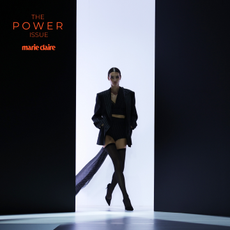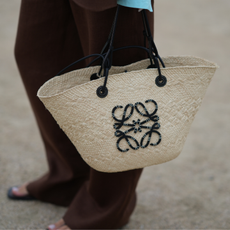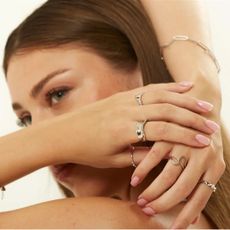'Make-Up Isn't About Fitting In. It’s About Finding Yourself Again'
Leaving an abusive partner is just the start if a long journey for victims of domestic violence. Reclaiming their identity is another challenge. We report on a new initiative utilising the power of make-up to help recovery...
Leaving an abusive partner is just the start if a long journey for victims of domestic violence. Reclaiming their identity is another challenge. We report on a new initiative utilising the power of make-up to help recovery...
Make-up is a choice. It represents the freedom to do what you want, to be who you want to be in the most contemporary and transformative of ways. It can be war paint; it can be a disguise; it can be something in between. And now, for thousands of women around the UK, it can be therapy, too.
Working with women who have experienced years of psychological and physical abuse at the hands of their ex-partners, charities across the country are positioning self-care as one of the primary tools for rehabilitation. For some women, that means taking the time to go to the gym, buy a bunch of flowers or read a book. For many more, it happens to involve eyeliner.

‘Cosmetics are often seen as superficial.’ says make-up artist Lee Pycroft, whose team at My-Management provides tutorials to women who have experienced domestic violence. ‘But there’s a therapeutic side to it, too. Many of the women I work with haven’t worn make-up for a long time, and you suddenly see a huge shift taking place in front of you when they’re given the opportunity to express their identity.’
The impact can’t be underestimated. One charity providing support to more than 10,000 survivors of domestic and sexual violence across London is Solace Women’s Aid. To mark its 40th anniversary, the charity has released a new report into the long-term impact of abuse. It reveals that 90 per cent of the women it works with continue to experience abuse at the hands of their exes even after they’ve left, and a quarter of the women have to move house up to three times in three years to end it altogether. And while legal advice and counselling all prove invaluable, for many, it’s about discovering who they are now.
This October – also Domestic Violence Awareness month – psychological abuse is to be criminalised, meaning that men who bully their partners will finally be held legally accountable. But they victory is bittersweet: crisis loans and community care grants have been cut, leaving many women unable to afford to relocate, and trapping them under the shadow of their past.
For them, more than anyone, it’s the little things that count. ‘Something powerful happens when a woman looks at her reflection in the mirror for the first time in weeks, months or years even, and remember who she really is,’ explains Pycroft. ‘In these circumstances, make-up isn’t about fitting in, it’s about finding yourself again.’
Marie Claire Newsletter
Celebrity news, beauty, fashion advice, and fascinating features, delivered straight to your inbox!
If you feel affected by these stories and would like more information, contact solacewomensaid.org or call 0808 802 5565. Or make a donation at solacewomensaid.org/donate-now
The leading destination for fashion, beauty, shopping and finger-on-the-pulse views on the latest issues. Marie Claire's travel content helps you delight in discovering new destinations around the globe, offering a unique – and sometimes unchartered – travel experience. From new hotel openings to the destinations tipped to take over our travel calendars, this iconic name has it covered.
-
 Your ultimate power dressing hit list for 2024
Your ultimate power dressing hit list for 2024Our step by step guide
By Sofia Piza
-
 These are the 16 cult designer pieces to invest in this season
These are the 16 cult designer pieces to invest in this seasonChic girl summer, anyone?
By Sofia Piza
-
 Trust us - you want to have this affordable jewellery brand on your radar
Trust us - you want to have this affordable jewellery brand on your radarSustainable handmade jewellery at sub-£100 prices? Yes please.
By Valeza Bakolli